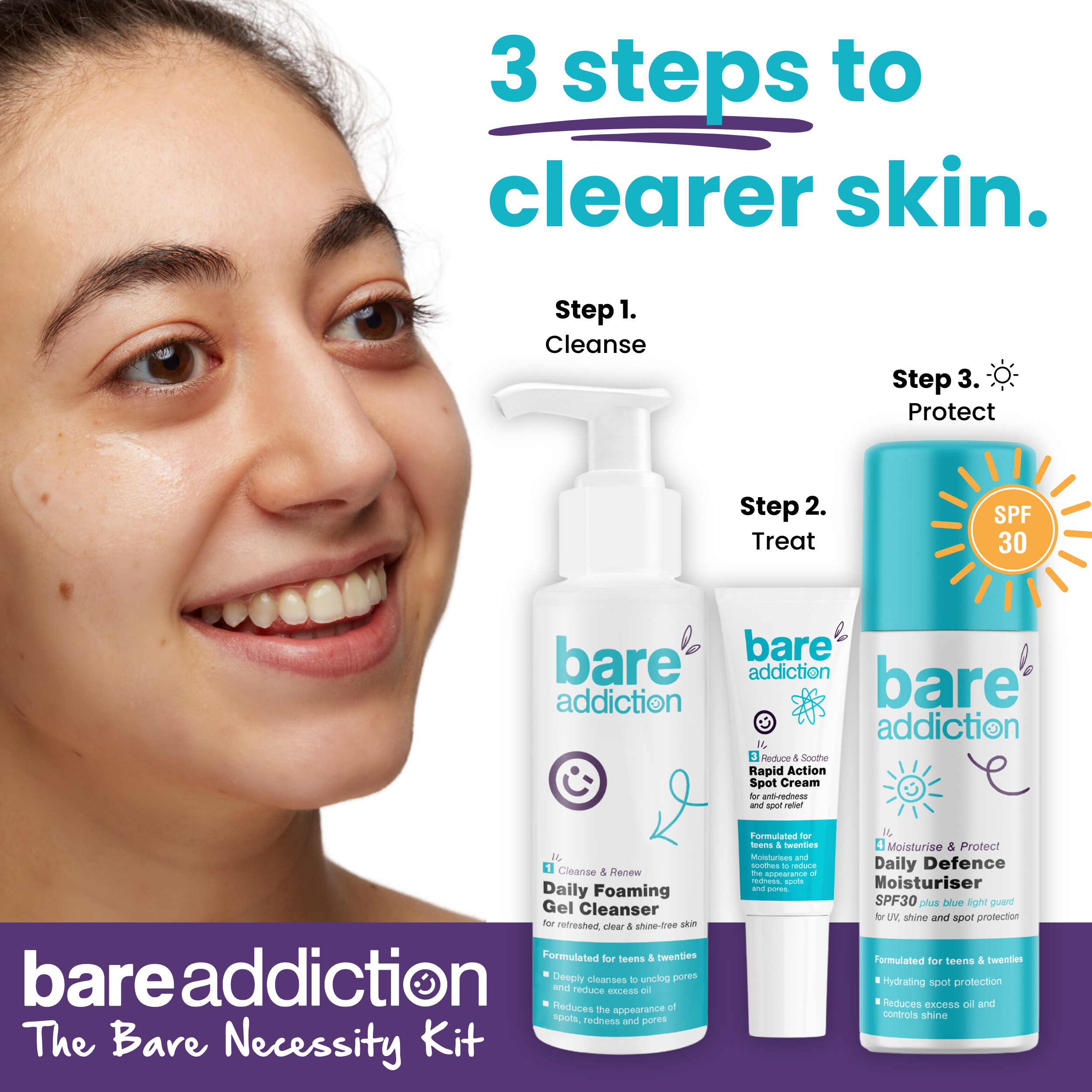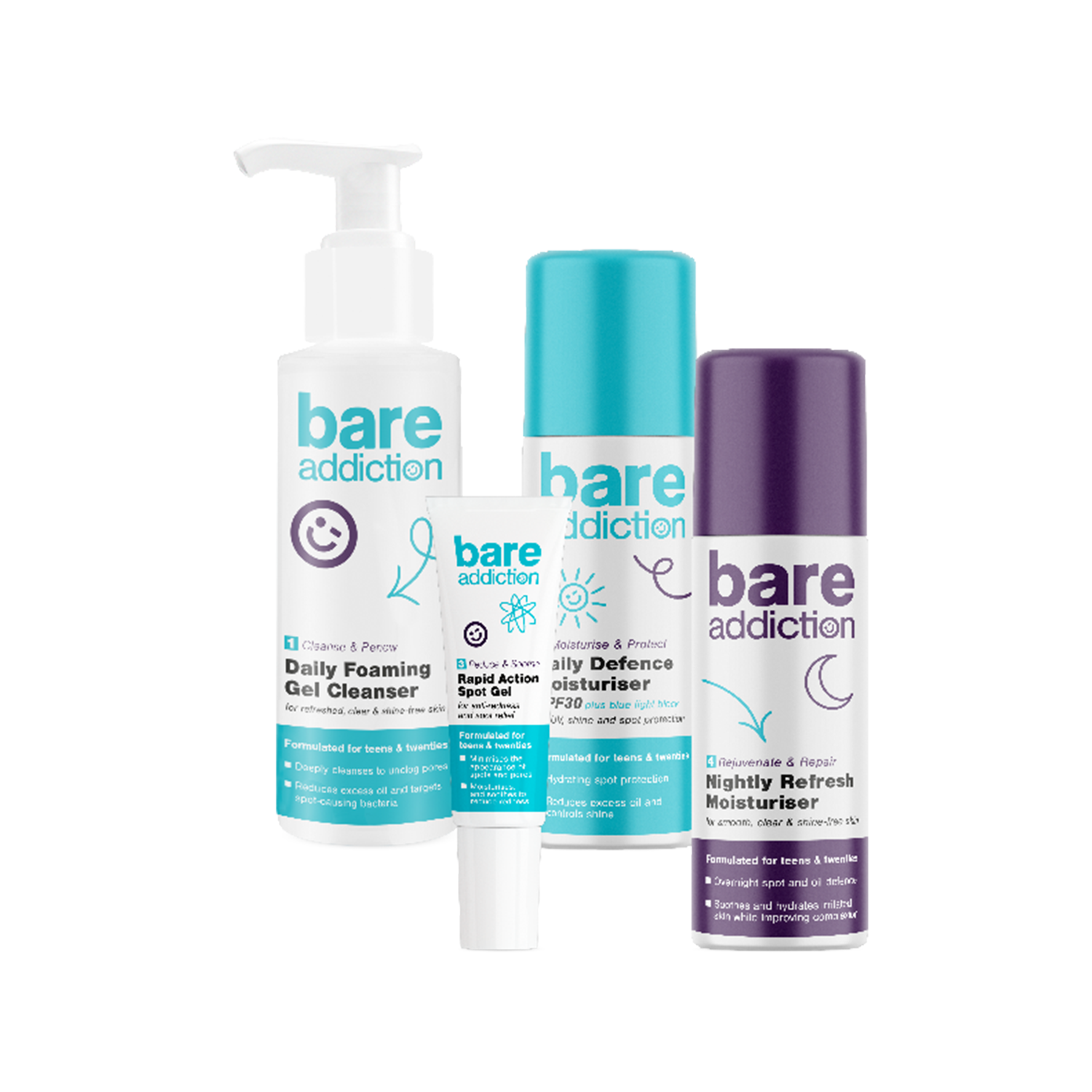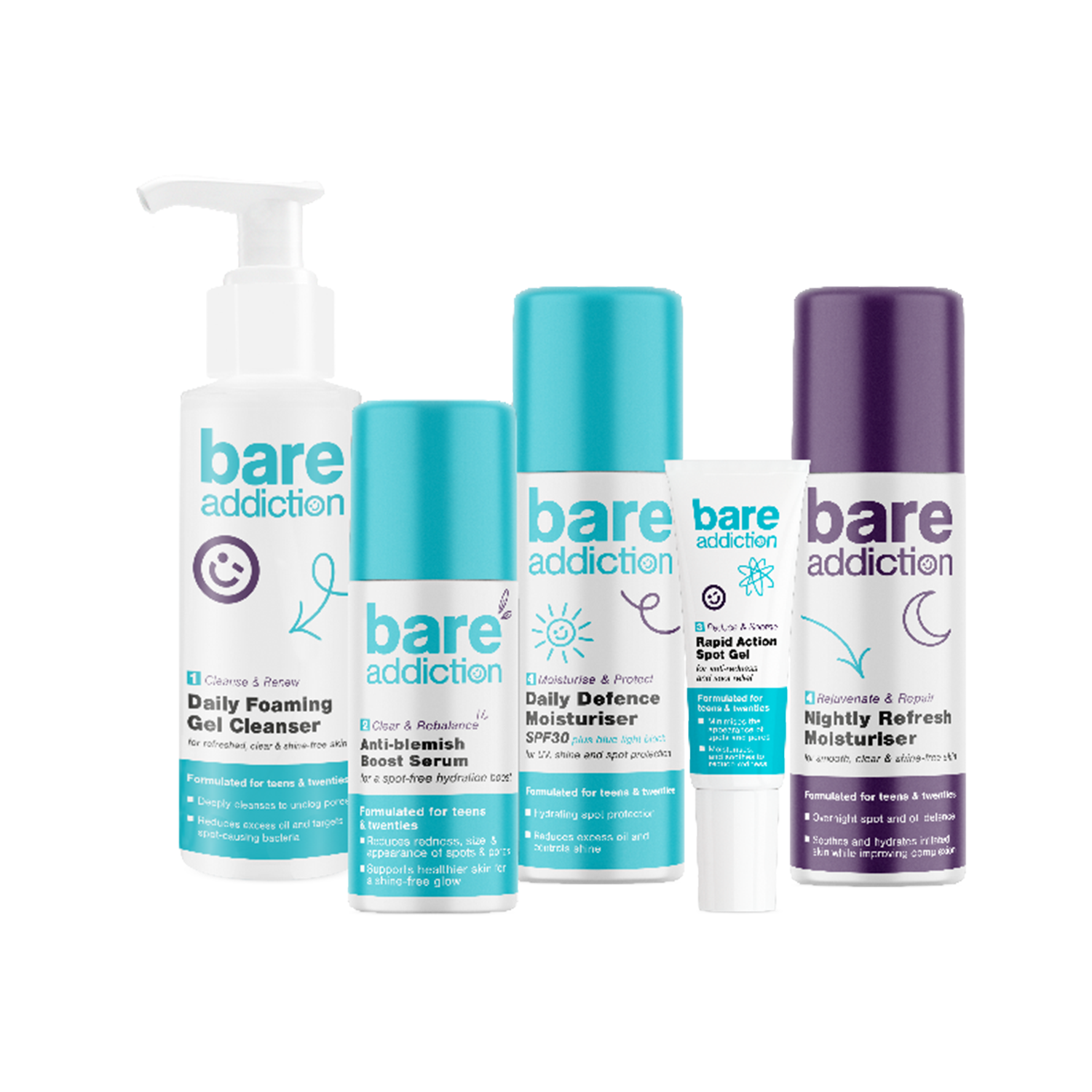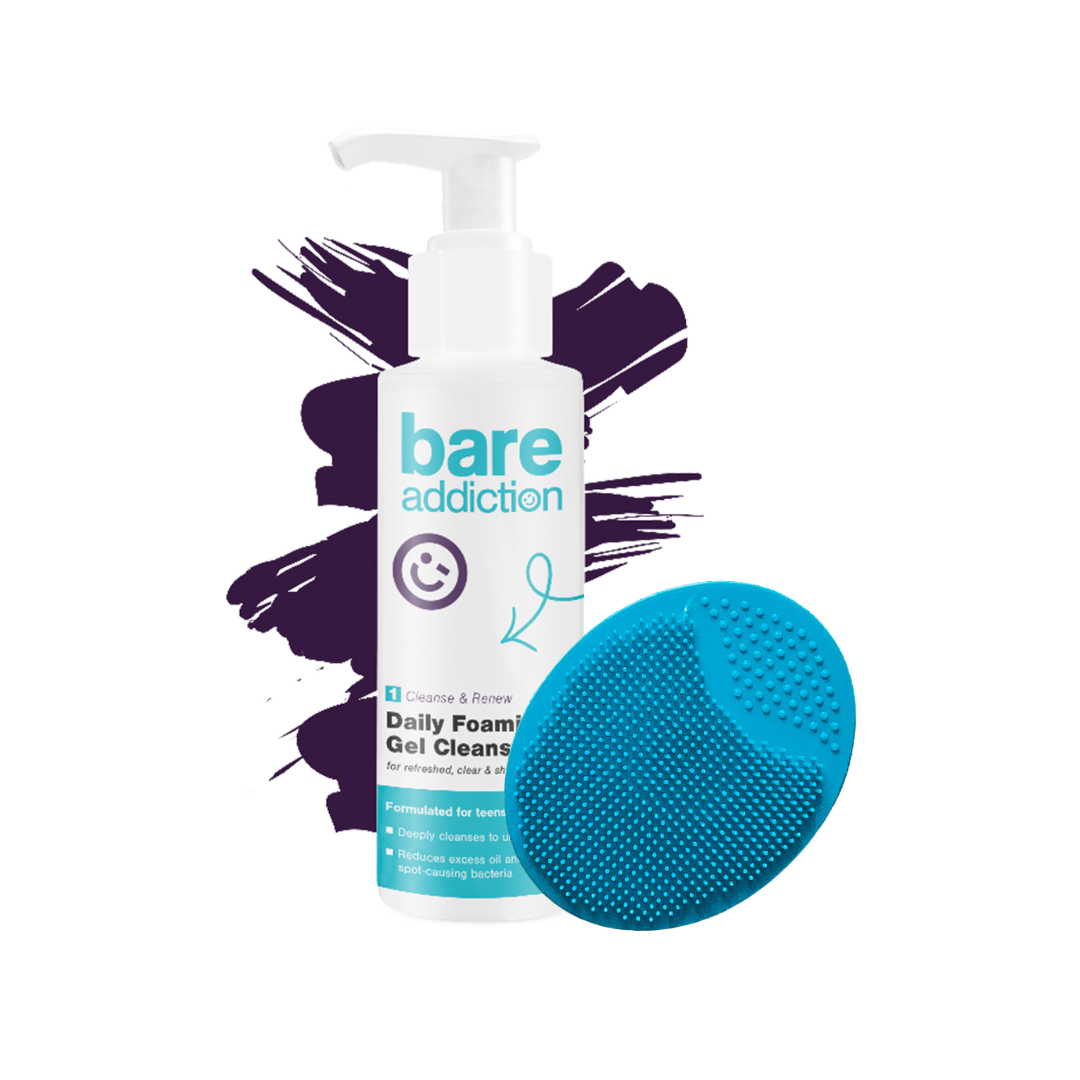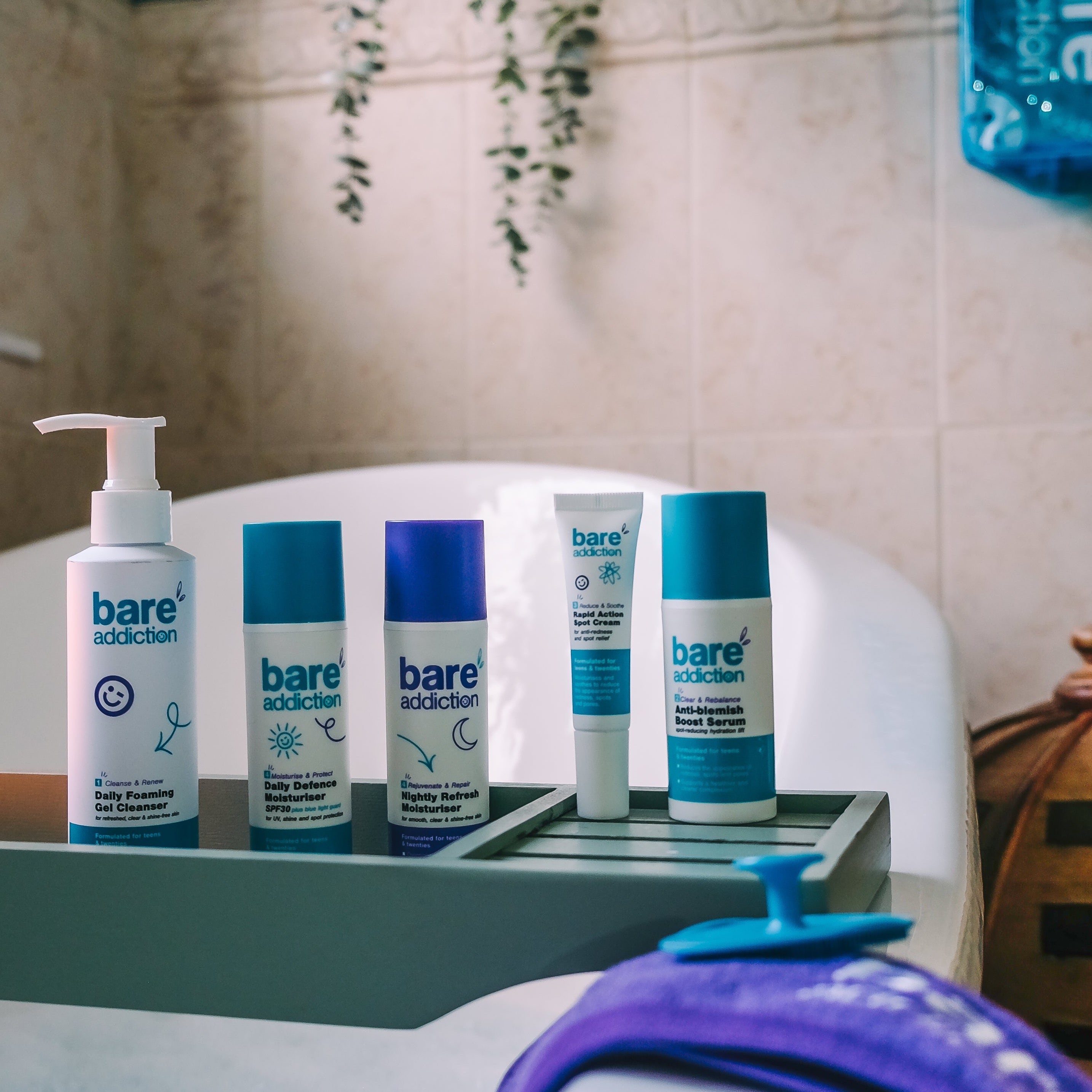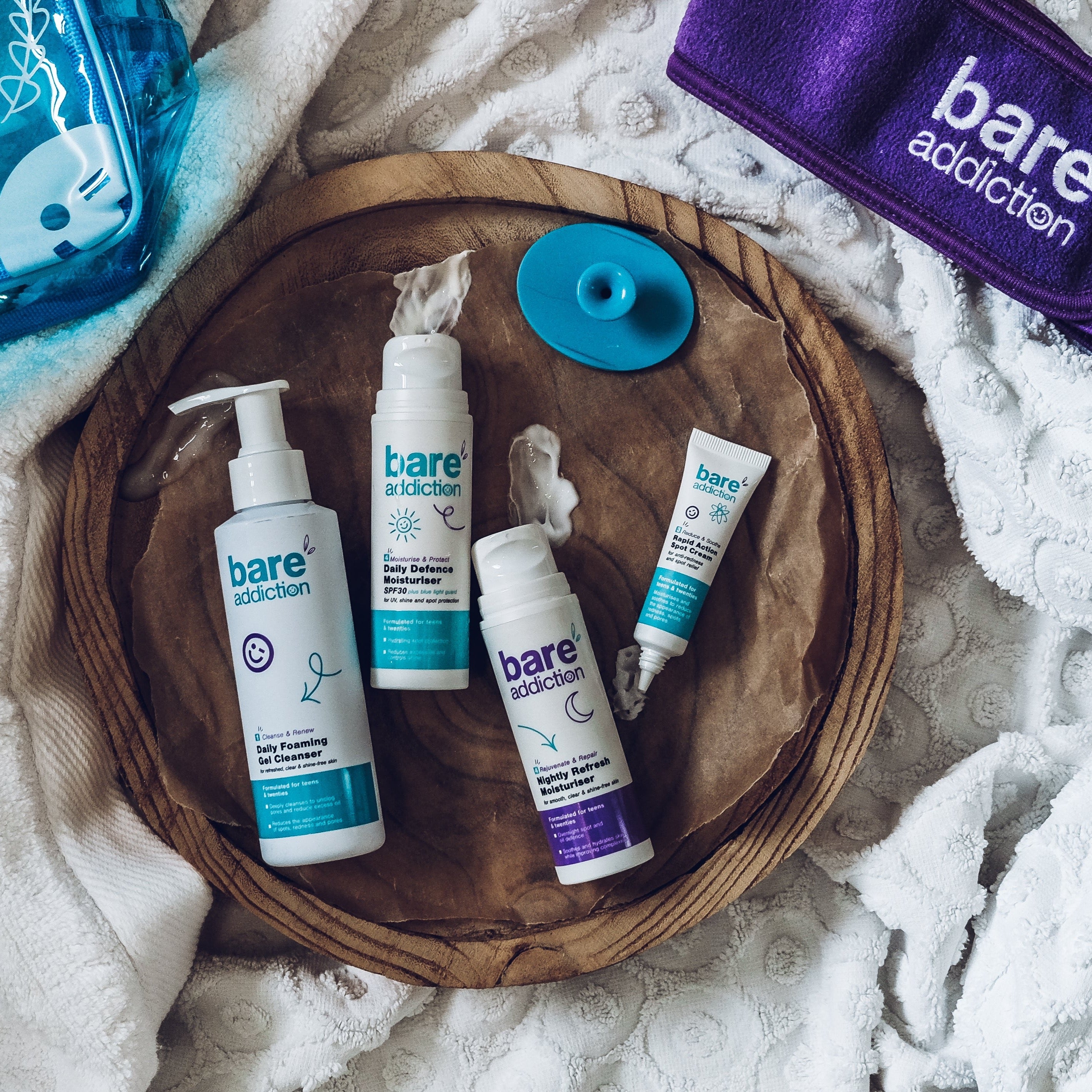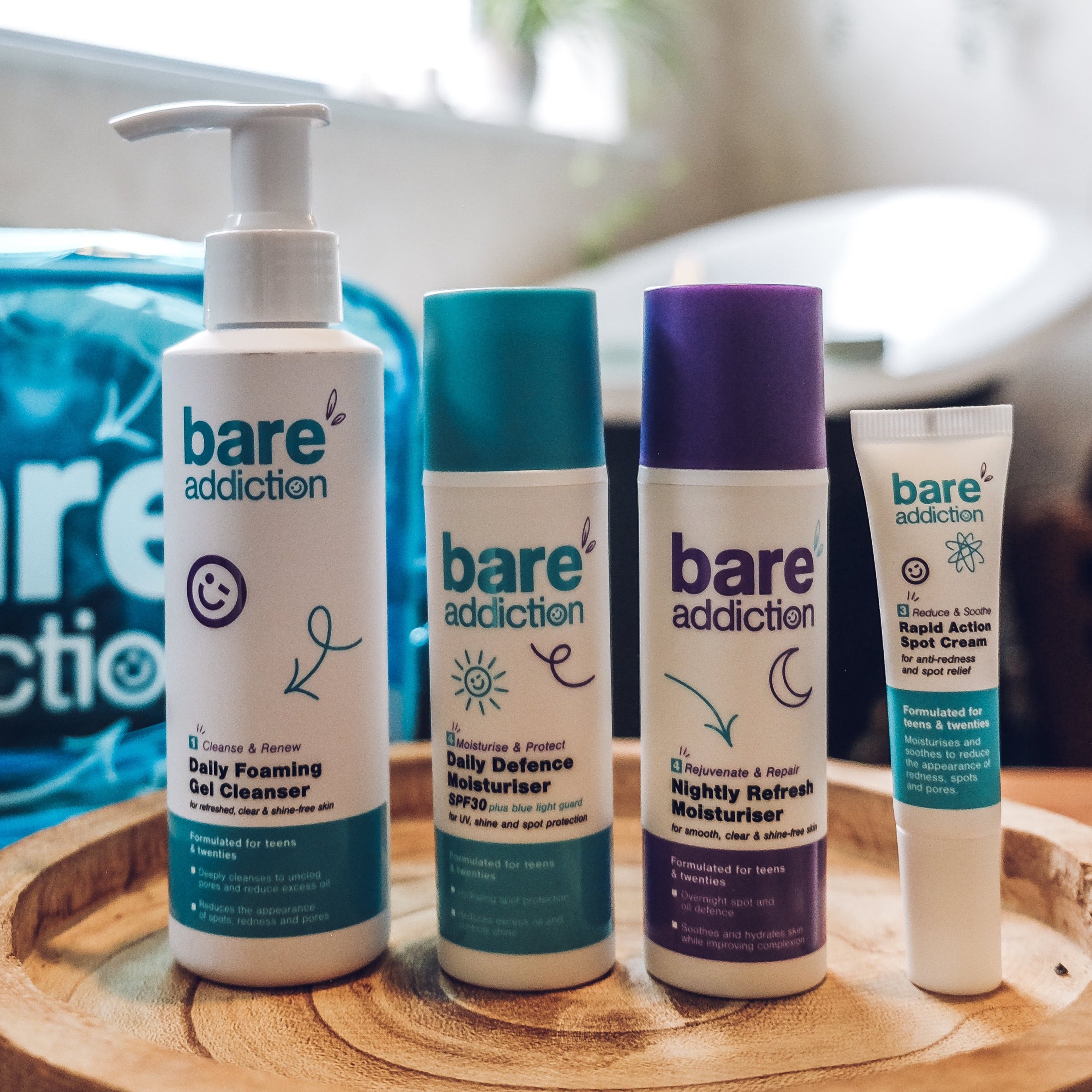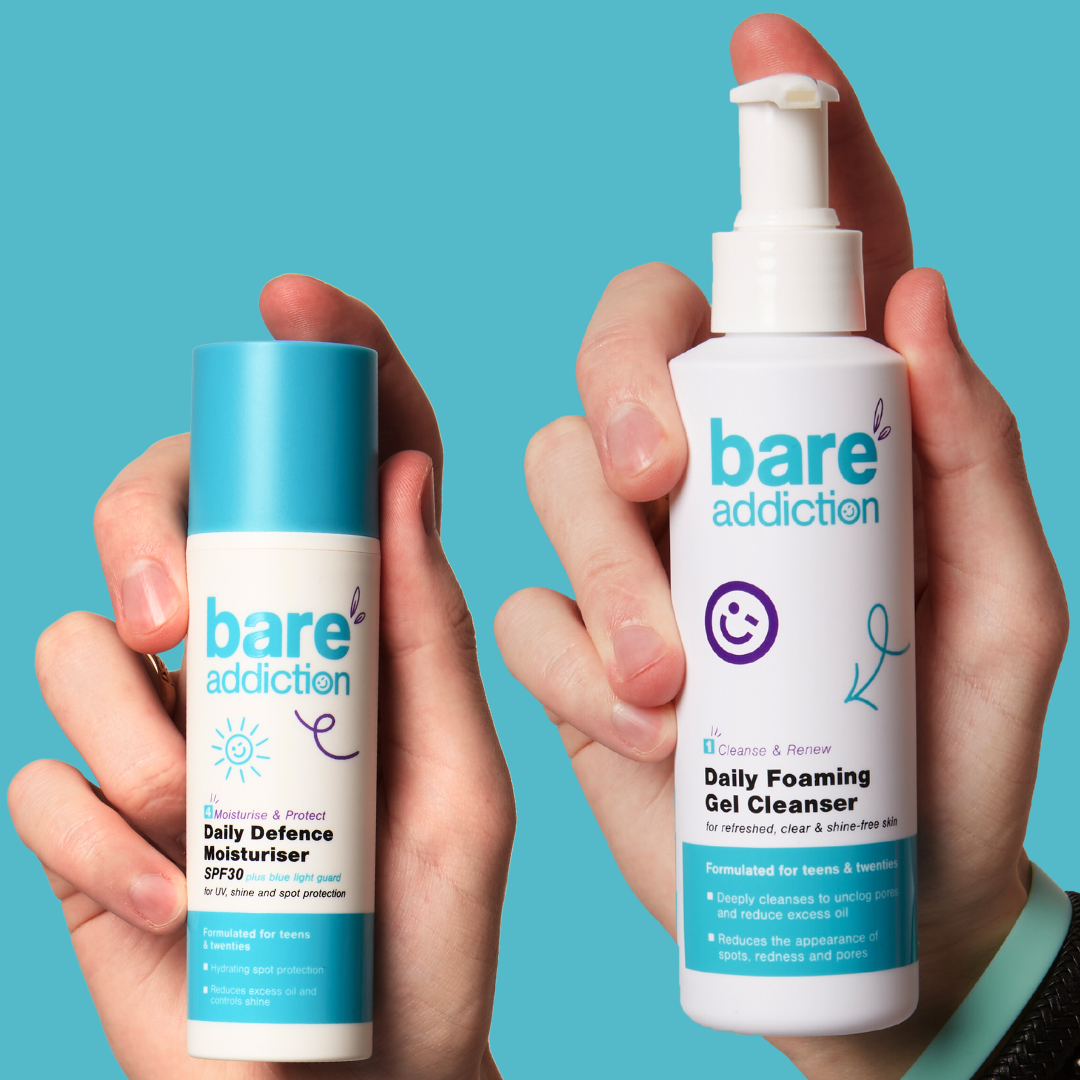Skincare formulated for Sensitive skin
Our Bare Addiction range has been specifically formulated for sensitive skin. Our products are all dermatologically approved to be suitable for sensitive skin. With soothing ingredients and moisture control this range is perfect for tween, teen and twenty-somethings skin.

While sensitive skin can appear on any part of the body, it typically occurs on the face. The term refers to skin which is more likely to be affected by inflammation and/or adverse reactions. It can also typically be a symptom of an underlying health condition. These health conditions are usually nothing serious and generally not a cause for concern.
Common causes of sensitive skin
There are quite a few causes of sensitive skin, with the most common ones being:
- A skin disorder or allergic reaction like rosacea, eczema or allergic contact dermatitis.
- Excessive exposure to certain environmental factors such as sunrays, wind, or excessively hot/cold weather.
- Hormonal changes due to menstrual cycle, puberty, pregnancy, etc. can affect the skin’s ability to resist irritants in the environment or the products you use, making it sensitive.
- Type 1 hypersensitivity allergies can lead to skin sensitivity, as allergens like pollen can easily penetrate the skin. Find out more at British Society for Immunology.
- Existing facial conditions like dehydrated and dry skin, acne or eczema can make the skin more sensitive to irritants.
The signs and symptoms of sensitive skin
Even though many experts say that a harsh reaction to certain kinds of skincare products, like stinging, redness, burning, itchiness or tightness, are symptoms of sensitive skin – here’s how dermatologists define the main symptoms/causes:
- Extremely dry skin which does not have the ability to protect the skin’s nerve endings results in sensitive reactions.
- Skin has a high likelihood towards skin flushing and blushing.
- The skin reacts with bumps, erosion of the skin layer leading to skin craters/indents and pustules.
- Redness, rashes, flaking, scaling, swelling and roughness on the face or anywhere else on the skin.
- Sensations of burning and itching, as well as prickling and tightness.
While the above symptoms can appear on any part of the face, they can also be observed on other parts of the skin.
How to deal with sensitive skin
Here are a few ways through which you can manage sensitive skin:
- Use skincare products and consume a diet which are both rich in antioxidants like Vitamin A, C and E.
- Wear a minimum SPF30 sunscreen even during cloudy weather conditions and avoid sun exposure between 11am and 3pm.
- Steer clear of skincare products that include irritants like strong perfumes, overly oily moisturizer or harsh cleansers.
- Always use a gentle and soap-free cleanser which doesn’t strip the skin of its natural oils.

